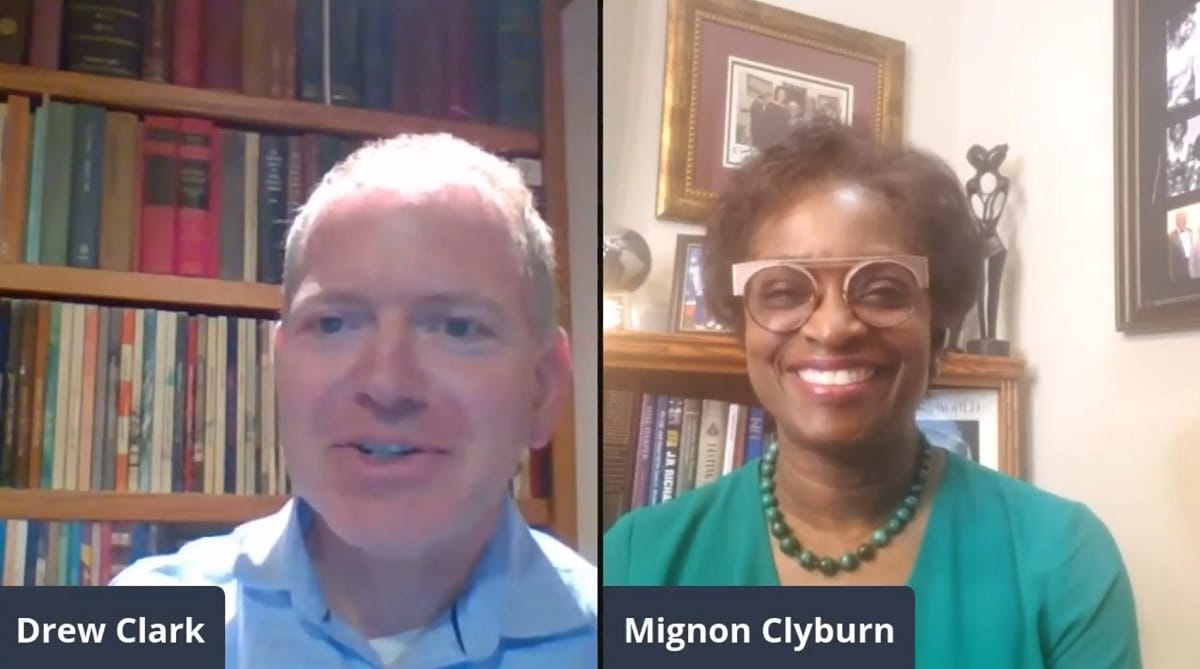Mignon Clyburn, Coy on Future Federal Communications Commission Role, Says Agency Lacks Authority to Clarify Section 230
August 6, 2020 – Former Federal Communications Commissioner Mignon Clyburn said that the FCC does not have the authority to clarify Section 230, speaking in a wide-ranging Broadband Breakfast Live Online interview on Wednesday. The event, part of Broadband Breakfast’s “Champions of Broadband” series
Elijah Labby

August 6, 2020 – Former Federal Communications Commissioner Mignon Clyburn said that the FCC does not have the authority to clarify Section 230, speaking in a wide-ranging Broadband Breakfast Live Online interview on Wednesday.
The event, part of Broadband Breakfast’s “Champions of Broadband” series, saw Clyburn discuss the current state of broadband during the coronavirus, as well as the future of internet legislation.
She said that Section 230 plays an important role in online discourse, providing platforms “with the opportunity to pull back, to make notations, to basically flag when something is harmful or inaccurate.”
However, she noted that some regulatory questions cannot be easily answered.
“I don’t know what the answer is other than the balance and the obligations and who has what authority should be made more clear, and when it comes to the FCC, I don’t think it does,” she said.
Broadband Breakfast Editor and Publisher Drew Clark, asked about the Trump administration’s revocation of FCC Commissioner Michael O’Rielly’s re-nomination, Clyburn said that it came as a surprise.
“I can usually feel when something is coming [and] I did not see that coming,” Clyburn said.
Ensuring universal broadband connectivity
Clyburn also spoke about the difficulties of telework and telelearning during the coronavirus pandemic.
“In too many places across this country, you’ve got millions of individuals who do not have an opportunity to have the type of learning that is required and will be demanded of them in a couple of weeks,” she said. “That to me is the saddest and most pressing challenge to learning.”
Clyburn said that hastier action on the Lifeline program – before the pandemic – would have helped to ease pressure on America’s broadband infrastructure.
“If we had modernized that program, then maybe we would have been further along right now,” she said. “Maybe the pandemic, the effects of that would not have been so severe because we would have been further along.”
Cooperation with existing public institutions is crucial to bring internet to all, she said.
“We need to be able to have seamless opportunities for connectivity, and we can’t just say, ‘build it and they will come,’” she said. “We can’t just say ‘what is the infrastructure on the ground.’ If I can’t afford that monthly service or if the service I have is only a couple of hours a month, then there is a barrier to connectivity. We really need to work with our school districts and our centers for learning.”
Clyburn said that looking forward, if she or anyone else were to be appointed chairman or chairwoman of the FCC by Joe Biden, were he elected president, infrastructure would be a crucial focus.
“Infrastructure pays multiple dividends on so many fronts,” she said. Now, broadband is widely understood to be an essential part of infrastructure: “It’s not just roads and bridges. It is way beyond that in order to ensure that we have a connected future.”
Clyburn said that her mission is to serve the United States in any future position.
“I am hardwired to serve my nation [and] I am infatuated and smitten by public service,” she said.










Member discussion